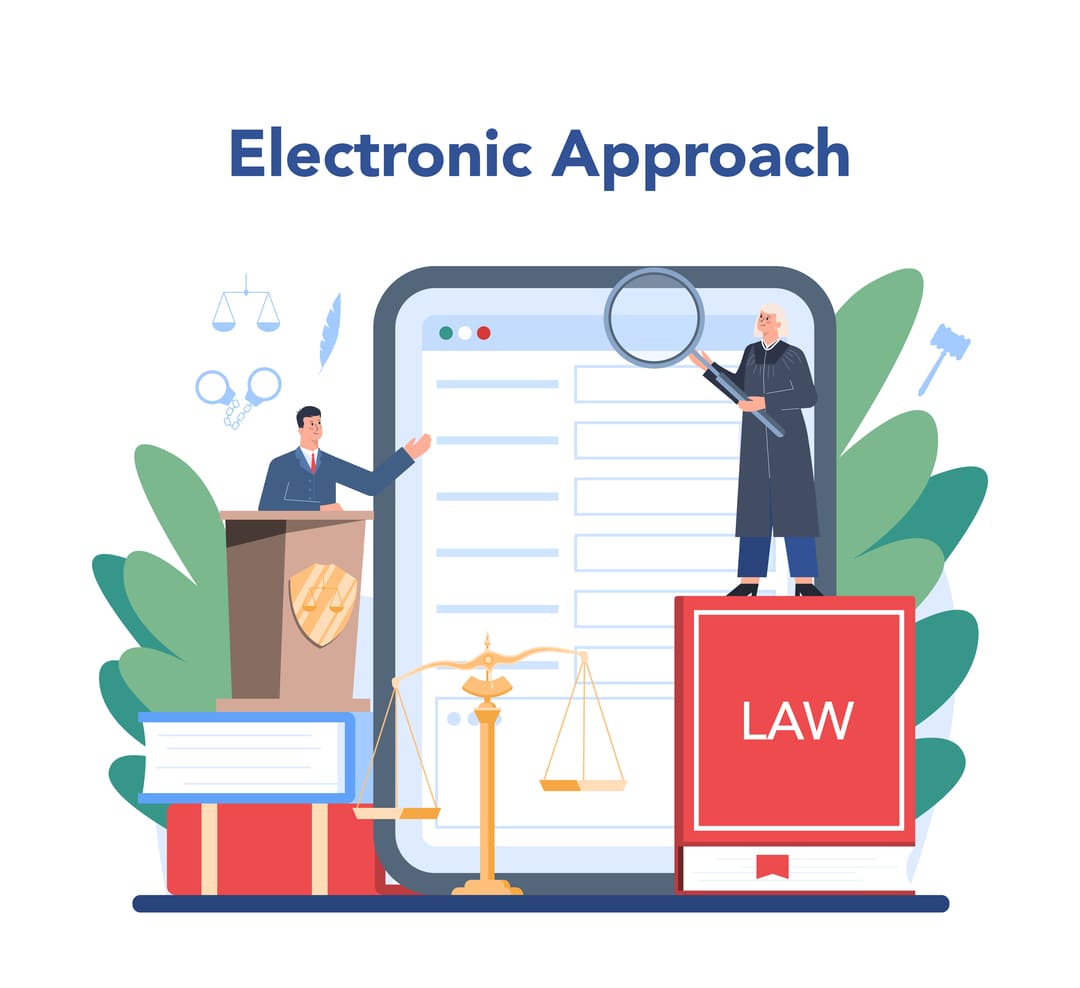What do you mean by Electronic Will?
In today’s world, almost every business functioning has an electronic alternative, mainly since the global pandemic has emerged. Previously, all meetings were held in offices; now, people prefer to hold most online meetings.
They are usually less expensive, faster to execute, and easier to implement. Once passed from office to office with small stickers indicating signature requirements, documents have been transformed into online documents that can be signed electronically conveniently and quickly.
But can the same be said for wills? Is it possible to create an electronic will, sign it digitally, get it witnessed, and then have it stand the test of time? Several changes have been made to the requirements for a will to make them easier to write, sign, and store. So here it is – everything you need to know about e-wills or electronic wills.
What is an Electronic will (E-will)?
If you are a complete beginner to what is an electronic will, an e-will (electronic Will) is entirely created online, from beginning to end. It uses electronic signatures rather than wet signatures, removing the requirement for a hard copy. And for electronic will storage, an e-will can be saved and shared online since it is created digitally.
As you might expect, this makes estate planning much easier and more accessible. It should be noted that while e-will technology is now available, it has yet to become valid in all 50 states. These points will be addressed in the following sections of the article.
What does an e-Will Cover?
If you are looking for how to make a basic will, an e-will covers the same things as a regular will, as long as it is recognized in your state. An e-will allows you to address various issues, such as asset distribution, naming beneficiaries, guardianship, wants for your final arrangements, and healthcare instructions and directives.
If you want to learn more about e-will and how to use it to protect yourself and your family, check out more about an e-will from a professional attorney.
Pros and Cons of Electronic Will
An electronic will exists solely in electronic form. A scanned copy of a physical will is not included here. But why would someone want to have electronic wills? And what to consider while getting one? There are some advantages and disadvantages as well. Let’s check them out.
Pros
Electronic wills are becoming increasingly popular for a variety of reasons. The following are the four primary advantages of using an e-will.
- Convenience
E-wills are extremely easy and convenient to put together. You can write and structure your own Will and even digitally sign it online. Setting up appointments to meet with a lawyer and notary in person can be difficult and time-consuming. Everything can be done online with an electronic will, including a video chat meeting with a lawyer to verify the Will.
- Paperless
While a standard will doesn’t require much paper, many people make several changes to their Will throughout their lives, which can add up to more paperwork. Furthermore, keeping track of paper documents as important as a will gets more difficult as many other essential documents transfer to digital formats. E-wills benefit both the environment and the organization.
- Good for Young People
Because younger people may not have the assets of a person who has collected them over a lifetime, many choose to avoid the trouble of drafting a traditional will. Because e-wills are so simple to set up and verify, even if you have few assets, it’s worth the effort.
- No Lawyer Present
As previously stated, one of the benefits of a will E is that you do not need to schedule an appointment with a lawyer. It is advantageous not only in terms of saving time but also in terms of saving money on expensive lawyer fees.
Cons
There are also a few disadvantages to using a digital will instead of a traditional one. The two most important points that one must consider before getting an e-will are as follows:
- No Lawyer Present
Not requiring a lawyer present to sign a will saves time and money, but it can also bring in its own set of problems. E-wills are more easily contested and can cause issues when it comes time to execute. A lawyer’s assistance in drafting a will protects a person’s assets from litigation.
- Not For Significant Assets
E-wills are easy to write and create – far too simple for someone with huge assets. A traditionally drafted will is more thorough and detailed than an electronic one to protect wills with high monetary value.
What is the difference between E-will and DIY Will?
Before we proceed, it should be noted that an e-will is not the same as a DIY Will. A do-it-yourself (or a DIY) will is a final will (and testament) you have written yourself. Some people prefer to go with the DIY route because they prefer to opt out of working with an estate planning attorney.
The primary purpose of this is to save money. They do this by searching for inexpensive or free-will-writing templates or kits online. However, for your documents to be valid, you still will need to print them and get the witness signatures.
In comparison, if you are wondering about “can wills be signed electronically,” an e-will is a product that is entirely created online, from the beginning to the end. The main difference is that it needs electronic signing of wills rather than wet signatures, which eliminates the requirement to create a hard copy and get the witness signatures to validate the document.
Simply put, as long as the state accepts it, an e-will is valid in its entirety digital form. In addition, an e-will must be created using a reliable and renowned platform to ensure your Will is genuine and valid.
What states have adopted the Uniform Electronic Wills Act?

State laws must be ready to accept a digital interpretation of standard requirements for an e-will to be valid.
First, will the state recognize a Will written and created electronically as “made in writing”?
Second, will that state recognize and accept e-signatures as legal signatures? Will they allow witnesses to see the willmaker sign the Will electronically, such as via video chat? Lastly, will they recognize and accept an electronic notarization as valid?
These are the issues that state court systems must consider and agree on before an e-will is recognized in every state. We mentioned earlier that some states have already said “yes” to these questions. Following that, we will reveal our early adopters.
A few states have amended their laws to allow for e-wills. Electronic wills are now legal in Nevada, Florida, Indiana, and Arizona. Utah and Colorado have also recently implemented the Uniform Electronic Wills Act, a model law brought in by the Uniform Laws Commission.
In other cases, state courts have accepted e-wills on an individual basis. As a result of COVID-19, some courts temporarily permitted remote witnessing as an emergency measure. Although e-wills are not yet legal in all 50 states, these early adopters will soon create an example for others to follow.
Are E-wills Legal?
Now, if you are thinking about is an Electronic Will valid, in theory, e-wills are legal, but they are still not accepted in all 50 states. Put another way; you must ensure that the state where you live legally recognizes an electronic will as valid before making an electronic will. E-wills are currently making history and will likely be legal in every state soon. There are a few early adopters of e-will, which we have already discussed in the above section.
Before we get to the end, let’s look at what makes a traditional will valid so you can understand the legality of an electronic will more effectively. A traditional will consists of three components:
- a) The Will is created in writing.
- b) The creator of the Will has signed and dated the Will.
- c) Witnesses who saw the willmaker sign their own will sign Will. Notaries are also often used in replacement.
The number of states that permit electronic wills is small but still growing:
- Arizona
- Colorado
- Florida
- Indiana
- Nevada
- North Dakota
- Utah
- Washington
During the global pandemic, New York and Connecticut issued executive orders allowing for quick and temporary electronic notarization or execution of Wills.
Conclusion
Electronic Last Wills and Testaments will likely become more popular, but this is still too early. Electronic law is a rapidly evolving area of law, and electronic wills may become the norm soon.
In the meantime, if you are wondering how to create a will online, here’s what you can do. To ensure that your family members and loved ones are cared for and your estate is distributed as you have always wanted, Clocr now allows you to create your Will online from beginning to end in less than 15 minutes.
Now that you have no excuse, what are you even waiting for? Make your electronic Will with us today!




